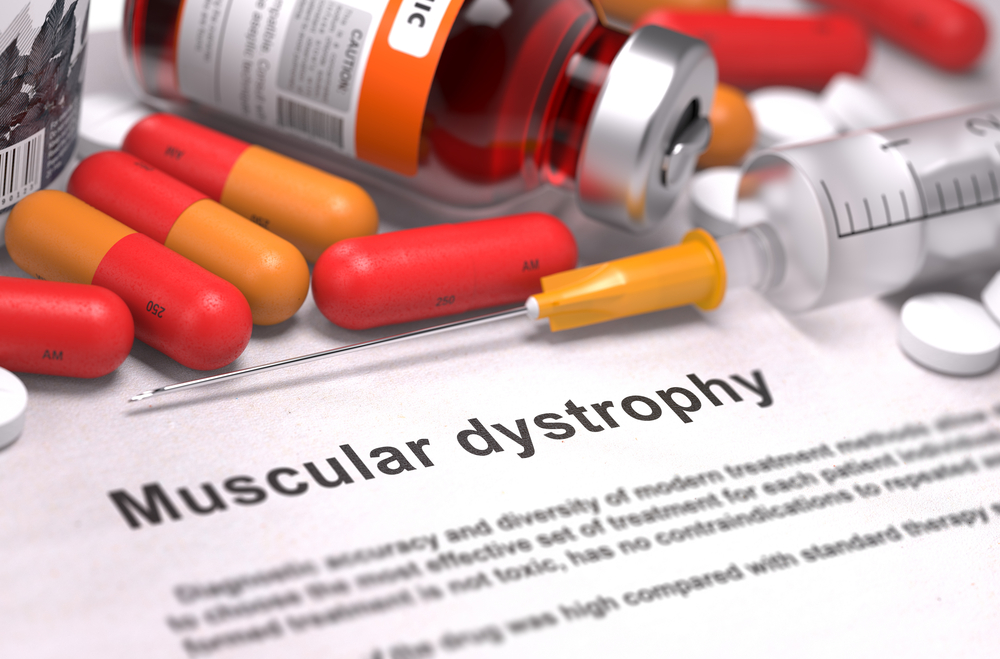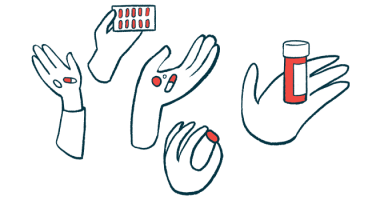Duchenne Muscular Dystrophy Might Be Treatable with Cancer Drug
by |

A drug used to treat leukemia might be a potential therapy to slow the progression of Duchenne muscular dystrophy (DMD), according to the results of a study published in the journal Human Molecular Genetics and titled “Dasatinib as a treatment for Duchenne muscular dystrophy.”
In the study, Dr Leanne Lipscomb and colleagues from the University of Sheffield, U.K., investigated dasatinib, a kinase inhibitor that works by blocking the action of an abnormal protein that signals cancer cells to multiply, helping to stop cancer cell progression. The team found that dasatinib also switches off similar signals in the dystroglycan protein, maintaining muscle tissue health. The dystroglycan protein is associated with DMD.
Researchers tested dasatinib in zebrafish bred to carry DMD and reported a 40% improvement in their condition. Specifically, the treated zebrafish swam faster and for a longer time than control fish. Researchers believe that if the drug is used in combination with other therapies currently under development, its effectiveness could be further improved.
“Dasatinib clearly has promise as a treatment for DMD,” Professor Steve Winder, who led the research, said in a news release. “From our understanding of how the drug works we believe it could be effective in slowing muscle deterioration, prolonging patients’ ability to walk and also protecting their heart and respiratory muscles. There is the potential that if the drug were taken immediately upon diagnosis, the disease progression could be dramatically reduced.”
Because dasatinib is an approved drug for several leukemias, researchers hope that trials might quickly be initiated to test its potential in DMD patients. Clinical studies have already started in mice, with encouraging results. Other drugs with a mechanism of action similar to dasatinib are also under investigation by Professor Winder’s team.
Dr. Marita Pohlschmidt, Muscular Dystrophy UK’s director of Research, noted: “These are encouraging findings about a unique new avenue to treating Duchenne muscular dystrophy. It is a complex condition and we are of the view that it will take a combination of therapies to treat it effectively. … In time, we hope that its potential to treat other muscular dystrophies will also be investigated.”
She concluded, “For now, we are looking forward to seeing the results of further research into Duchenne muscular dystrophy to support these early promising results.”
DMD is caused by the absence of dystrophin, a protein that helps keep muscle cells intact. Symptom onset is in early childhood, usually between ages 3 and 5, and the disease primarily affects boys. It currently has no cure.







